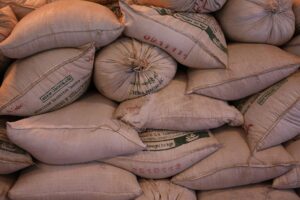
The Bureau of Customs (BOC) Post Clearance Audit Group (PCAG) has heightened its campaign against undervaluation and misclassification of rice importations by private traders.
According to PCAG, it has selected 60 entities with the greatest number of incidents of deviation and the highest percentage of discrepancies in duties paid for its transaction-based audits. The 60 entities were part of the 245 entities that imported rice from March 5 to June 20, 2019.
PCAG chief and assistant commissioner Atty. Vincent Philip Maronilla earlier said rice importers were part of the third batch of 121 auditees last year to check their compliance records in view of the passage of the Rice Tariffication Law.
Based on audit results, the auditees were found liable for the payment of P1.417 billion of customs duties, penalties, surcharges, and interest due to undervaluation, misclassification, and/or understatement of freight and insurance charges.
PCAG also found that undervaluation of declared customs value remains the primary risk in revenue collection from rice imports, accounting for P497.942 million or 36.08% of the total deficiency assessment.
In terms of level of compliance, the audit findings showed a low level of compliance among audited importers, as 47 auditees or 85.45% were found to have violated customs laws and regulations. Meanwhile, eight auditees were found to have properly declared their goods and provided pertinent documentary requirements as stipulated in the Customs Modernization and Tariff Act (CMTA).
Audit examination and investigation of five auditees, meanwhile, were deferred due to the pending dispute settlement proceedings with the respective ports of entry.
Under CAO 01-2019, within three years from date of final payment of duties and taxes or from customs clearance, BOC may conduct an audit examination, inspect, verify, and investigate records pertaining to any goods declaration, which includes statements, declarations, documents, and electronically generated or machine-readable data.
READ: BOC post-audit group collects P2B in 2019; fuel firms among next auditees
Such audit intends to ascertain the correctness of the goods valuation and determine the possible liability of the importer for duties, taxes, and other charges, including any fine or penalty.
Aside from audit examination, BOC has been acting on reports by concerned citizens regarding warehouses suspected of storing smuggled rice stocks. The agency immediately issues letters of authority to enable BOC officers to inspect such warehouses and seize goods without the requisite importation permits.
“We actually raided them and we found out that many of these warehouses were operating legally and their stocks are covered by proper documents,” Customs commissioner Rey Leonardo Guerrero said during an executive committee meeting with the Department of Finance.
Guerrero also gave assurance in a recent report to Finance Secretary Carlos Dominguez III that in addition to the raids, the agency will also still subject rice stocks imported by private traders during this time of crisis to “post-modification and post audit.” This is to ensure that undervalued shipments are properly assessed and subsequently paid with the correct duties and taxes by the importers.
Guerrero explained that since rice is a critical commodity, traders have been allowed to avail of the provisional goods declaration in processing their shipments at this time of pandemic.





